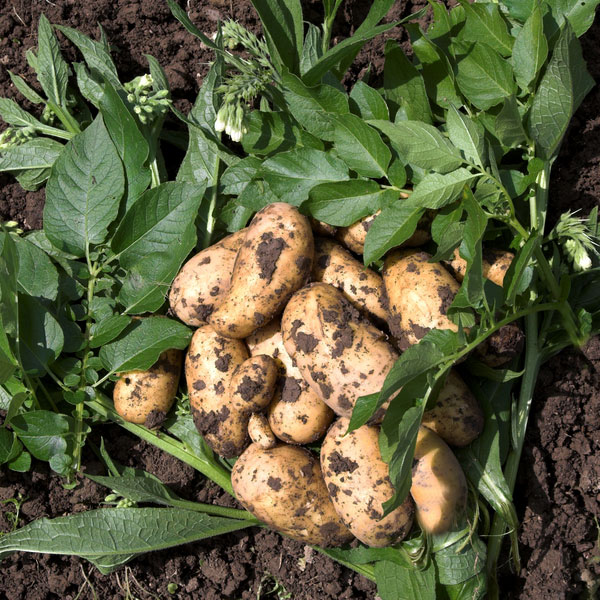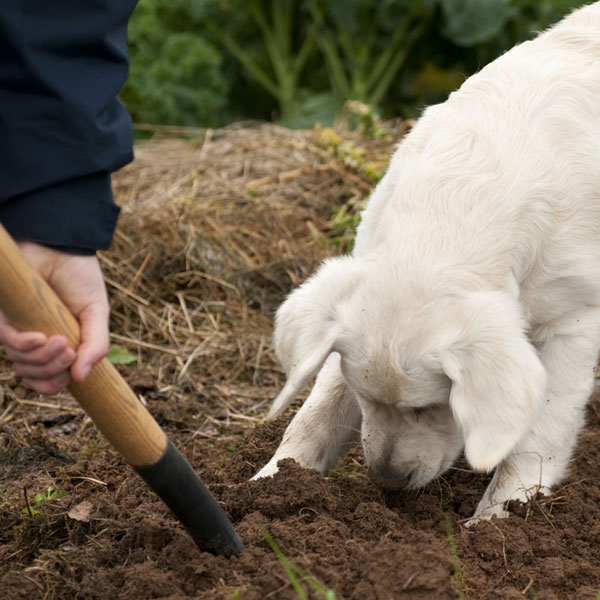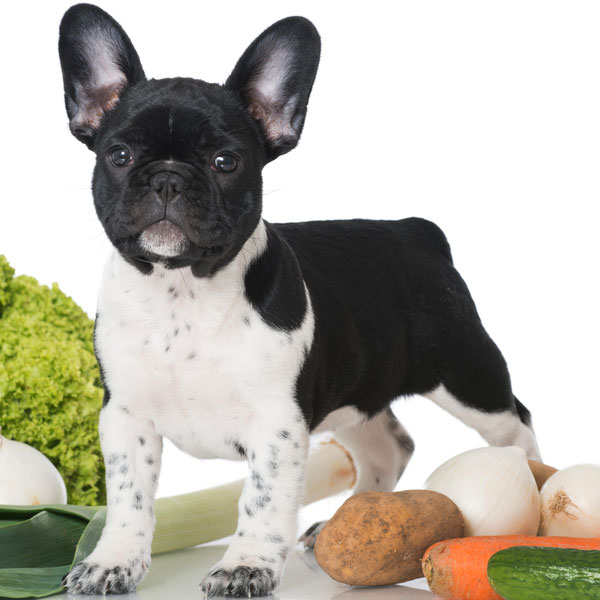Helping my friends at their small urban farm, I dedicated one particular Saturday to digging up and harvesting ripened potatoes and sweet potatoes. I took a great deal of pleasure in turning over earth with my hands and uncovering these healthy and nutritious tubers. I felt a certain kinship with my own dog, who has quite a proclivity toward digging herself. This brought to mind two questions: Can dogs eat potatoes? Can dogs eat sweet potatoes?
Can dogs eat potatoes?
Originating in South America, potatoes have been grown by humans for thousands upon thousands of years. Grown around the world now, alongside corn, rice, and wheat, potatoes are one of the top food crops on earth. Potatoes, like eggplants and tomatoes, are members of the nightshade family. This family affiliation alerts us to the primary risk that potatoes pose to our dogs when they are raw or lie unripened in our gardens.
Immature potato plants — including the leaves, stems, and skin of the potato — contain a defensive poison called solanine. Our dogs tend to be well-fed and cared for, so it’s unlikely that your dog would consume enough of the unripened potato plant to experience its dangers. Solanine can adversely affect a dog’s nervous system, blur the vision, disrupt digestion, and slow the heart rate. If there is any green whatsoever visible on a potato’s skin, keep it well clear of a curious dog.
Dogs can eat potatoes — if they’re plainly prepared and served in moderation

Once a potato is fully ripe and mature, you may consider offering a small bit of the peeled tuber to your dog without too much risk, but cooked is always preferable. Baked, boiled or mashed potatoes should only be given to dogs on occasion, and even then, in small amounts once they’ve cooled. A bit of potato, plainly prepared, offers our dogs the same nutrients it does to people: carbohydrates for energy, potassium to regulate blood pressure, as well as B and C vitamins. In the very limited quantities a dog may eat, however, the benefits they’ll derive are negligible at best.
The ways in which many of us enjoy potatoes is a different matter. Keep your dog away from French fries, potato chips, potato skins and baked potatoes piled high with flavorful toppings. Where French fries are concerned, frying oils are not healthy for dogs at all, and salts or other popular seasonings can cause digestive upset. The same is true of the butter, sour cream, and cheeses that sit atop skins and whole baked potatoes.
Can dogs eat sweet potatoes?

Sweet potatoes are not in the nightshade family, but, depending on the variety of vine they grow upon, may still be toxic to dogs. Raw and unripened, it’s advisable to deny your dog access to sweet potatoes. As with regular potatoes, preparing a sweet potato before giving small portions to dogs is the best approach. Preparation includes boiling, baking, or otherwise plainly cooking sweet potatoes. Additionally, dehydrated slices of sweet potato can be a nutritious treat for dogs in moderation.
Sweet potatoes contain A, B, and C vitamins, which are beneficial to both dogs and dog owners. However, like normal potatoes, sweet potatoes are rich in carbohydrates. While these provide energy, our dogs’ need for carbohydrates are more than satisfied by their normal dog food. Excessive carbohydrate consumption, particularly when it is derived from vegetable matter, lays a path toward obesity, pancreatitis, and diabetes for dogs. Too much dietary fiber from plants in a single meal puts them at risk of digestive upset.
As with all things, dogs can eat potatoes and sweet potatoes in moderation
Similar to the ways in which we love eating potatoes, our favorite sweet potato recipes carry a number of risk factors for our dogs. That means your grandma’s famous sweet potato pie is out of the question where your dog is concerned. Sweet potatoes already contain more sugar than dogs are accustomed to processing and filtering, so that heap of marshmallow goo that tops the sweet potato pie adds more empty calories that our dogs are ill-equipped to handle.
Whether it is your standard potato or a sweet potato, these tubers should only ever be deployed as occasional treats. If you grow potatoes or sweet potatoes at your place of residence and have your dog along for company as you garden, make sure your dog has eaten, or that you have a treat ready to hand over. This will ensure that a hungry or bored dog doesn’t ingest the poisonous or toxic parts of the potato or sweet potato plant during the growing season.
Do your dogs eat potatoes? What about sweet potatoes? Let us know in the comments!
Learn more about what dogs can eat on Dogster.com:
- What Exotic Fruits Can Dogs Eat?
- Can Dogs Eat Vegetables Like Celery, Tomatoes and Cucumbers?
- Can Dogs Eat Nuts Like Almonds, Pistachios and Cashews?
The post Can Dogs Eat Potatoes Safely? What About Sweet Potatoes? appeared first on Dogster.

No comments:
Post a Comment